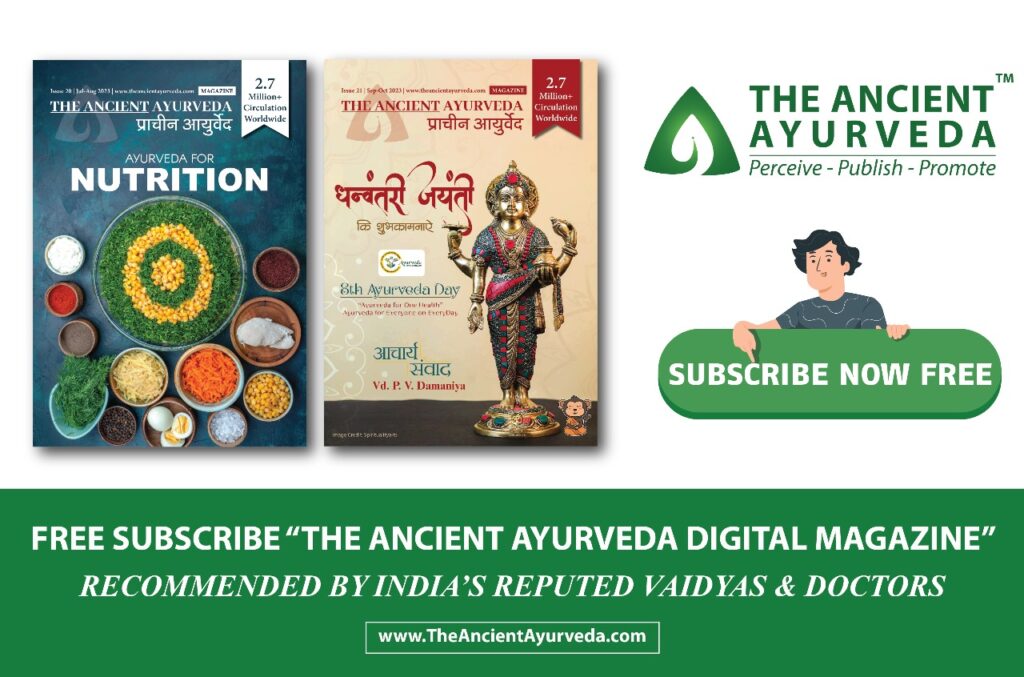Ritucharya or seasonal regimen is an ancient practice in Ayurveda. It consists of a diet and lifestyle discipline to be followed in a particular ‘ritu’ to deal with the seasonal changes in the body and mind. Structuring our diet and lifestyle according to seasons holds the key to a boosted immunity and balanced life.
Monsoon season is categorized as Varsha Ritu. According to Ayurveda, Varsha Ritucharya has recommended some routine and lifestyle modifications to be followed, to ward off the imbalances in the body during monsoon. This in-turn will help you boost immunity and maintain good health. During this season, aggravation of Vata and Pitta dosha is considered as the root-cause for various diseases and conditions. The food, lifestyle and care should help in balancing the vitiated Vata & Pitta doshas and maintain a healthy body constitution.
The holistic rejuvenation process consisting of a special diet, lifestyle and effective Ayurvedic therapies to be followed is characterized as Monsoon in Ayurveda.
DIET
According to Ayurveda, ‘Agni’ is responsible for the digestive & metabolic activities of the body. During monsoon season, Agni or the digestive fire is weak due to the aggravation of Pitta dosha which in-turn leads to various diseases. Diet thus followed during this season should balance the vitiated doshas and stimulate ‘Agni’ to perform proper digestion.
Here are few simple guidelines recommended by Ayurveda that should be followed during the Monsoon –
- Drink small portions of lukewarm water throughout the day for good digestion
- Easily digestible, hot & light foods should be taken
- Ginger, black pepper, lemon can be used to promote better digestion
- Moong can be eaten with cow ghee or filtered oil
- Medicated porridge like rice soup, millet soup with spices is recommended
- Include honey in your diet
- Fried, spicy, uncooked foods should be avoided
Foods “To Have & Avoid” during Varsha Ritucharya to Boost Immunity
Rainy season or monsoon also requires meticulous diet planning to stay in good health. Dr Vishakha Mahindroo, senior Ayurveda consultant & panchakarma expert says, “In Varsha Ritu an individual’s health becomes weak. The strength of the digestive fire reduces and variation of ‘Vata dosha’ and deposition of ‘Pitta dosha’ are prominent.”
Here is a guide on what foods to have and avoid during Varsha ritucharya to boost immunity
GRAINS
Opt for grains that are easily digestible so that the body does not have to put a lot of effort to break them down. Aged grains are preferable for the same reason. Quinoa, sorghum (jowar), wheat and rice are great options to have during the rainy season. If you are looking for delicious recipes to make using these grains, try poha, dosa, upma, idlis, parathas (without frying), kanji (rice soups) and quinoa upma. Try to keep your recipes simple so that they would go easy on the digestive system.
FRUITS
During Varsha ritu, it is recommended to have whole fruits instead of having packaged or pressed fruit juices. You should have fruits like cherries, melons, figs, and pears. It is better to avoid heavy milkshakes as they might be slightly harder to digest when compared to whole fruits and are considered as ‘incompatible foods’ for this season. Have a filling and tasty salad in breakfast by combining these fruits and covering them with a dressing of lemon juice mixed with salt and pepper.
VEGETABLES
Include a lot of permitted vegetables in your diet, according to Varsha ritucharya. For example, you can have veggies like pumpkin, corn, okra, beetroot, eggplant, sweet potato, and beans. If you are adding the vegetables to a salad, consider steaming them a little. Vegetable soups are a great appetizer and can be beneficial for weight loss when had in dinner. However, steer clear from using leafy green vegetables like spinach, methi, laal saag etc. as they may cause Vata vitiation in the body.
SPICES
Have simple spices like saindhav namak (rock salt), ginger, black pepper, lemon, asafoetida, garlic, jeera, and coriander. In Varsha ritu, limit yourself to these spices when flavoring your food. You can also add a combination of these spices in your buttermilk as per your taste but ensure to only have it during daytime.
LIFESTYLE
Monsoon is a time when body’s immunity drops, thus proper care should be taken to prevent possible illnesses. Some of the lifestyle tips to follow during Monsoon are –
- Ayurvedic treatments are highly recommended during this season to prevent any kind of disorders and to boost immunity
- Use warm water for bath
- Avoid walking bare foot
- Massage body with oil
- Avoid sleeping at daytime
- Use umbrella to avoid heavy rains & strong sun rays which usually come during monsoon
- Avoid over exertion in any form
ACCOMPANY WITH LIFESTYLE CHANGES
Having a proper diet only gives positive results when accompanied by healthy lifestyle changes. Stay hydrated during the rains and sip warm water medicated with herbs as suggested by your doctor. It is advised to meditate and do pranayama every morning. Put drops of sesame oil in the nostrils after pranayama. Disinfect your home with dhoop (fumigation) every day. The herbs used in fumigation contain active antimicrobial properties, whether used alone or along with other herbs—for example, guggal dhoop. Apply medicated ubtan (paste) on the body before taking a shower and only bath with warm water in this season. Take care of your body inside out and handle seasonal changes simply by following ayurvedic Varsha ritucharya.

